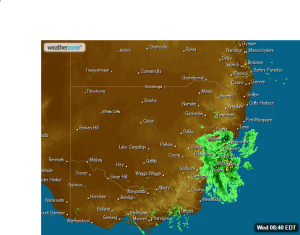 All of us in business know that it is an activity with an inflated level of risk. There are many external factors which can impact upon the performance of the business over which we have no control. I have written elsewhere about the 4 C’s of business ownership. Control over our destiny is certainly one which is important to me, but the vagaries of being in business mean that no matter how well we structure our affairs, no matter how good we are at doing our thing, there can be no real certainty of outcome.
All of us in business know that it is an activity with an inflated level of risk. There are many external factors which can impact upon the performance of the business over which we have no control. I have written elsewhere about the 4 C’s of business ownership. Control over our destiny is certainly one which is important to me, but the vagaries of being in business mean that no matter how well we structure our affairs, no matter how good we are at doing our thing, there can be no real certainty of outcome.
What we do have control over is what is happening right now, and what we are doing with the now to minimise the impacts of tomorrow. If the only plan we have is our business plan, then we are exposing our lives, and that of our families to a higher level of risk than is necessary. By taking some small steps to separate ourselves from our business, we can significantly reduce that risk.
A couple of things to think about……
- Pay yourself an appropriate salary
I cannot tell you how many times I have seen business owners underpay themselves. The argument (or excuse really) is that salaries are minimised for tax purposes. In reality, structure your affairs as tax efficiently as possible, pay your remuneration to whatever entity best suits you, but make sure it is ENOUGH! A good test is what would you have to pay someone to do your job. You should be able to expect that as a minimum, then be adequately compensated for the funds you have invested in the business at a risk-exposed rate. The return on funds can be subject to profitability, the salary for all the hours you are working should never be.
- Make sure you are maximising your superannuation opportunity.
By its nature superannuation investment separates a pool of assets from those employed in your business (business real property excepted). Your business ought to be able to sustain an appropriate level of superannuation contribution for you, make sure you take advantage of it. We could talk forever about superannuation, but suffice to say it is still the most tax advantaged way of accumulating wealth.
- Keep your personal cash and your business cash separate.
Those of us in small business have all done it, topped up the business account with our own funds when things get tight. We need to resist this urge. Your business, if it is sustainable, should not need to resort to the Bank of Owner. By setting aside funds for a potential need to provide short term funding for our businesses, we close off the ability to provide long term funding for ourselves. If funding is appropriate and necessary then make the arrangements on a business like footing with a real bank. If the bank wouldn’t lend you the money, then you really need to think about being the lender yourself. Above all resist the temptation to skip a couple of week’s wages, or superannuation or any other payments to yourself, it’s just not good business.
- Do something with your money
If you are paying yourself appropriately, then you ought to be able to plan what to do with your hard-earned cash the same as any employee. Set aside some as a reserve, reward yourself for the additional work and the additional risk you are taking on, and then make sure you put into place a plan to accumulate some wealth outside of your business, you will be glad one day that you did. The main thing is to do SOMETHING, rather than nothing. Just because you are busy (and we all are) doesn’t mean you can only think about your business, there are other wealth creation strategies you know. If you need to outsource this, do so.
- Make sure you are covered
A business owner who doesn’t insure his inventory, his premises, his vehicle fleet, his equipment etc. is asking for trouble. I haven’t come across too many who have not dealt with these issues. What I DO see is too many business owners leaving themselves inadequately protected. Like anyone else, a business owner’s biggest asset is his means of earning an income. As an owner you can continue to pay yourself if you get sick for a time, but can your business sustain that for long? Do you need to consider the risk to the value of your business if it needed to operate for a long period without you? Have you thought about what happens if you HAVE TO sell, rather than sell when you want to? Could your significant other run your business if you weren’t around? Being in business adds a level of complexity to these issues, so make sure you are talking to someone who kows what they are talking about.
As a business owner myself I came to the realisation years ago that business owners, like anyone else, have the right to expect a secure working life adequately remunerated, with the ability to set aside funds for life after business, and to adequately protect their families. If you are unable to exercise this right then you should question why you are in business. If you are able to, but haven’t, then why not?
If you like this article why not share it? I appreciate your support. Be sure to visit my blog again for this and other articles. If you have any thoughts, comments are always welcome! Why not connect with me on Social Media so we can continue the conversation


 “If you are miserable NOW, but not willing to change, you’ve got a problem”
“If you are miserable NOW, but not willing to change, you’ve got a problem”










 For the first time that I can remember, the Australian Government has delivered a budget which pretty closely matched what they were saying in the lead up.
For the first time that I can remember, the Australian Government has delivered a budget which pretty closely matched what they were saying in the lead up.